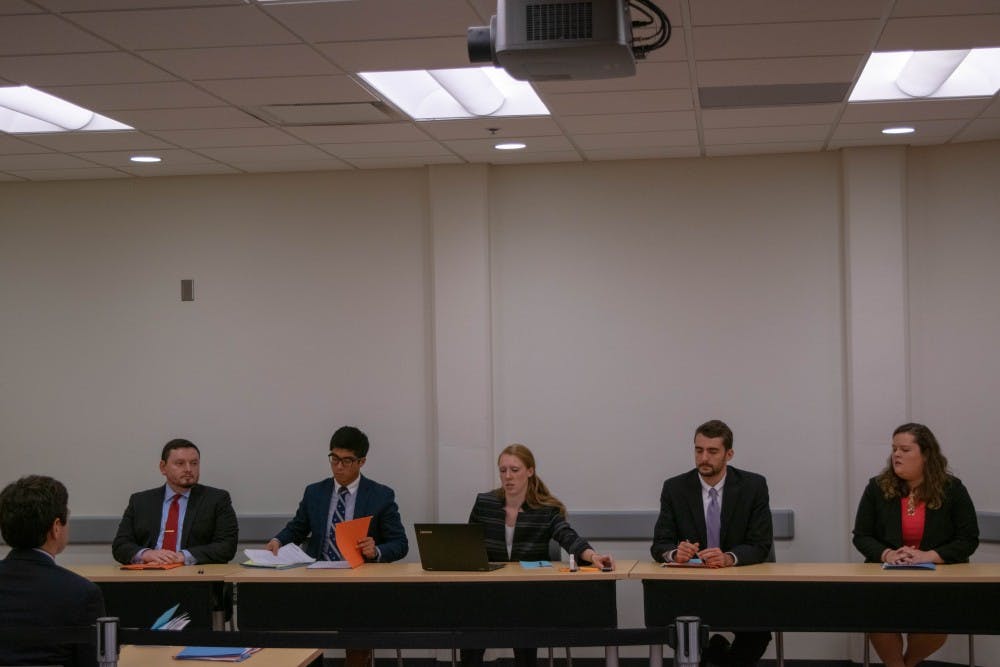Nearly 180 UNC professors and graduate students have signed on to a boycott of the student-run Honor Court system, stating a collective refusal to send students to the courts for any disciplinary action until a list of demands are met.
At the time of publication, the boycott had received signatures across numerous departments. It included 36 professors, almost 140 graduate students, many of whom work as teaching assistants and in other positions, and a handful of other University members.
The boycott began due to a combination of frustrations with the honor system, which consists of an Undergraduate branch and a Graduate and Professional Schools branch.
One focus is the trial of Maya Little, a doctoral history student recently sanctioned by the Honor Court for spreading a mix of her blood and red paint on the Confederate monument Silent Sam in April. The case, which Little successfully appealed and expects to continue in the spring semester, received backlash after Frank Pray, a law student heavily involved in past advocacy for Silent Sam, was allowed to remain a member of the panel sanctioning Little.
Started by history graduate students Alyssa Bowen and Jennifer Standish, the boycott also references that Little, a Black woman, faced a five-person panel that included no Black students.
One listed demand is for Little’s charges to be dropped. The boycott also demands that racial inequities in Honor Court decisions, proceedings and charging be addressed, citing a 2016 DTH article that covered the disproportionate amount of Honor Court cases concerning students of color. The final demand is that each student-member of the honor system involved with Little’s case be held accountable.
Susan Bickford, a political science professor and 26-year faculty member, said she joined the boycott after a colleague told her about it. In an email to the DTH, she said she’d been mostly happy when using the Honor Court for past instances of plagiarism.
However, she said she thinks it isn’t appropriate for the court to adjudicate political disagreements and instances of civil disobedience, and that the “clearly unfair” treatment of Little has undermined her trust in the institution and students running it.
“I was stunned that a member of the court was on record as a supporter of Confederate monuments and was not asked to recuse himself,” Bickford said. “It showed a disturbing lack of judgment on the part of the students running the proceedings.”




